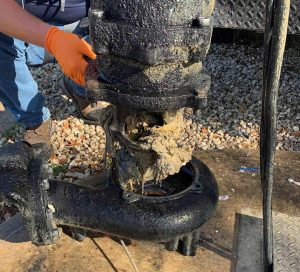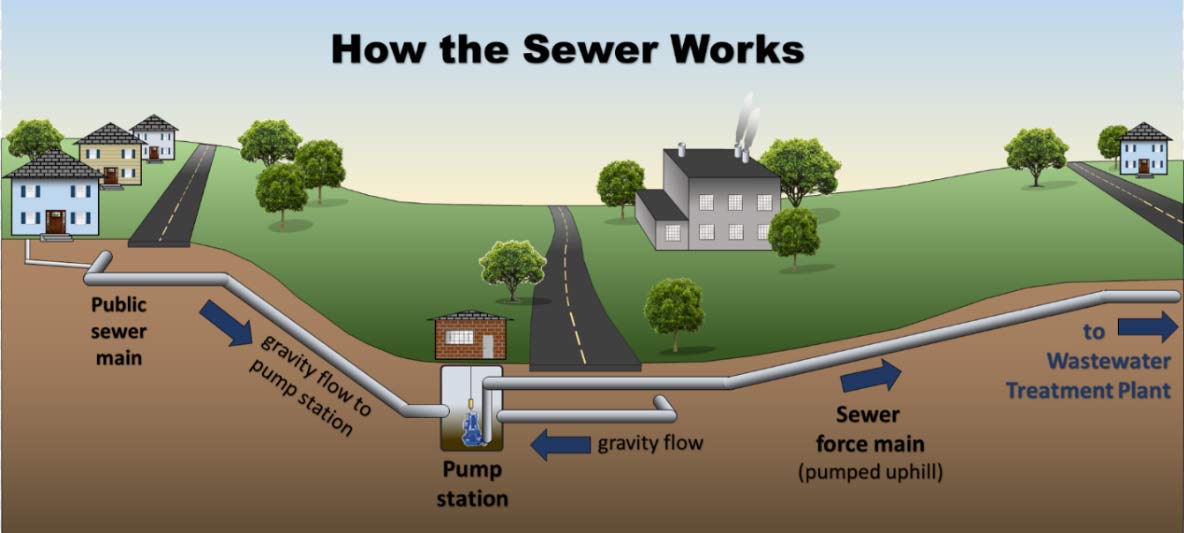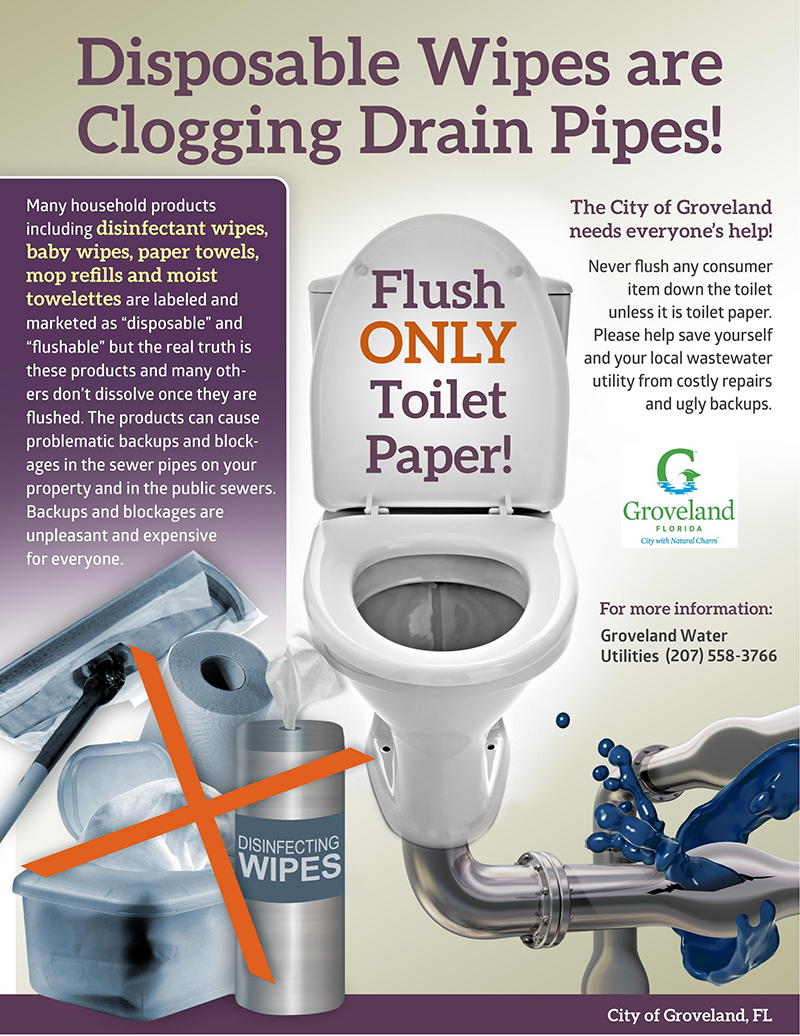By Marty Proctor
Wipes, cloths, rags, and other items don’t belong in city sewers and have placed an extra strain on Groveland’s wastewater facilities. It doesn’t matter if the package says flushable or biodegradable, or those wipes and rags easily flush…IT ‘S NOT OK TO FLUSH.
In the City sewer 3 step systems, rags, wipes, and other items are simply not biodegradable. They cause clogs in the system. Toilet paper is the ONLY type of paper, wipe, that is specifically designed to break up and be biodegraded in municipal systems. The other products need to be thrown out through the garbage system.
After wastewater (that’s what the professionals call sewage) leaves your bathroom and neighborhood, the first stop on the way is called a pump or lift station. These stations collect and pump the wastewater The alien materials that are flushed clog the station and it stops working. “Over the last couple of weeks, our techs have experienced an increase in sewer and lift station pump clogs,” stated Steve Guba Project Manager of Woodard and Curran and the former City Public Services Director. “These emergencies often occur at night or on weekends.” This costs the City both in extra “on call” expense and overtime.
 The inevitable backup can allow mass lumps of material to pass to the next level. The central sanitary system plant on Sampey Road is designed to separate and shred the normal materials. This allows and speeds the natural biodegradation of the biologicals and toilet paper. The mass and lumps of material have been slowing the main plant as well. This can result in emergency shutdowns, cleanouts and repairs.
The inevitable backup can allow mass lumps of material to pass to the next level. The central sanitary system plant on Sampey Road is designed to separate and shred the normal materials. This allows and speeds the natural biodegradation of the biologicals and toilet paper. The mass and lumps of material have been slowing the main plant as well. This can result in emergency shutdowns, cleanouts and repairs.
These added, unnecessary failures mean that your neighbors working for the City end up on call or working overtime to handle these emergencies and the unknowns of the COVID-19 virus exposes them to possible contamination beyond the normal wastewater challenges. No one really knows how long the virus lives, how it can be transmitted. Excessive safety requirements can require the use of particulate respirators, full face masks, and even hazmat suits to prevent exposure.
“We are asking residents to help reduce these emergency calls and avoid potential sewer backups by being cautious of what they flush down,” added Steve. You can help avert this problem. Just because it flushes down does not make it compatible with the wastewater system. Do your part, throw it out.








